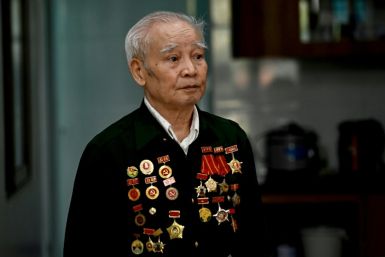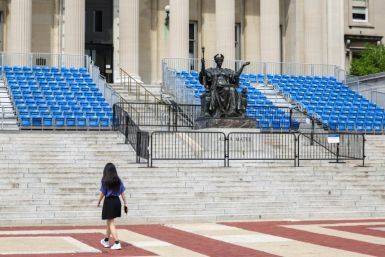U.S. Court Nixes Inclusion of ‘Steve Jobs Quotes’ in Apple-Samsung Patent Trial
The sentiments aired by the late Steve Jobs about Apple's rival operating system, Android, will not be considered once the Apple-Samsung patent contest begins at the end of the month.
U.S. District Judge Lucy Koh granted on Wednesday Apple's plea to strike out the statements made by Mr Jobs prior to his death in October 2011.
In the Steve Jobs bio-book penned by acclaimed journalist Walter Isaacson and published shortly after the tech icon's demise, Mr Jobs did not hide his contempt for the Google operating system, which he vowed to destroy by any available means.
Mr Isaacson quoted the Apple co-founder as saying that he was willing to employ thermonuclear attack in order to stop Google from circulating the mobile platform he considered as an affront to Apple's intellectual property.
"I'm going to destroy Android, because it's a stolen product. I'm willing to go thermonuclear war on this," Mr Isaacson reported the former Apple CEO as saying on the bestselling bio-book.
Mr Jobs also pledged to use up Apple's vast resources to ensure the destruction of Android, which to date has outpaced the iOS in the latest global quarterly sales of smartphones.
Apparently, the then-enraged Steve Jobs swore to "spend my last dying breath if I need to ... to right this wrong."
Samsung had decided to include on its defence Mr Jobs' 'thermonuclear declarations' against Android as it tried to convince the U.S. court that Apple's case is also about the annihilation of a competition and not merely on claims of copyright infringements.
What Mr Jobs had declared "speaks to Apple's bias, improper motives and its lack of belief in its own claims in that they are a means to an end, namely the destruction of Android," Samsung said.
But as far as the San Jose, California federal court is concerned, Mr Jobs' personal ill-feeling against a product created by a close rival should not be weighed in the patent litigation that Ms Koh has set to commence July 30.
"I really don't think this is a trial about Steve Jobs," Ms Koh was reported by Reuters as saying in deciding that the Steve Jobs quotes were irrelevant to the case between Apple and Samsung.
The same court also ruled that the trial will be allowed to touch on Apple's China assembly facilities, which she clarified must be regarded as human rights matter, and Samsung's tax records in the United States.
But the latter cannot be exploited as a platform for Apple to raise Samsung's alleged tax avoidance issues, Ms Koh stressed.
The two tech titans has been locked in more than a year of legal battles spread in markets around the world that had produced mixed results thus far.
Despite efforts by Apple to keep Samsung Galaxy product lines off the global markets since last year, claiming they were mere copycats of the U.S. company's bestselling iPhones and iPads, the products were generally allowed to be sold.
While battling threats of injunctions to its key Galaxy models like the Galaxy S2 and S3, the Galaxy Note, the Galaxy Tabs 10.1 and 8.9 and the Galaxy Nexus smartphone, Samsung has managed to achieve Q2 2012 record mobile division sales on the back of Android handsets global dominance.
Yet in the tablet computer turf, Apple's iPad remains the top choice by global consumers, with more than 60 per cent of market shares based on figures issued by leading industry trackers IDC and Gartner.






